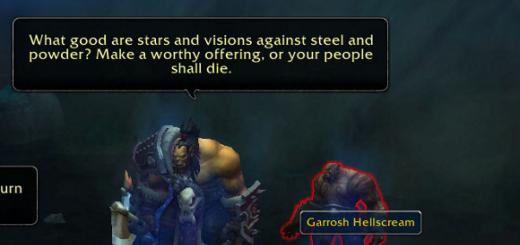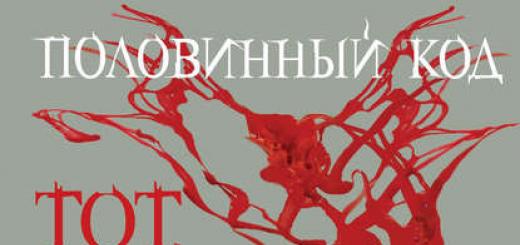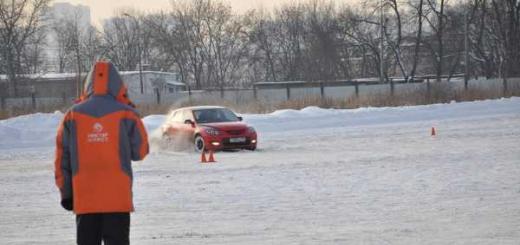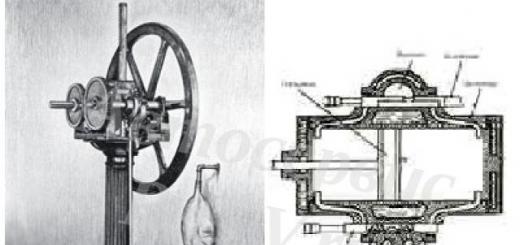WE continue to acquaint you with the family chronicle of one of the most famous noble families of Russia - the princes Trubetskoy. The last issue of "Superstars" published the memoirs of Princess Lyubov Obolenskaya about the pre-revolutionary life of the family. Today, 97-year-old Prince Sergei Grigoryevich Trubetskoy, who kindly provided the family correspondence at the disposal of Superstars, tells about how the fate of the glorious Trubetskoy house developed after the October Revolution of 1917.
1918
BEFORE retreating from the Caucasus, the Bolsheviks arrested and shot many. Uncle Misha Lopukhin, an officer in the Sumy Regiment, was arrested in August 1918 in Moscow. Princess Golitsyna went to ask about him to the prominent Social Democrat Smidovich, who was a relative of Metropolitan Evlogy and a teacher of the Lopukhins in his youth. Smidovich told Golitsyna that he would help her if Misha Lopukhin promised not to oppose their government. Uncle Misha refused and was shot on August 23, 1918 after the assassination attempt on Lenin... He was led to the execution with his friend, Nikolai Nikolaevich Korotnev. When they were led along some kind of fence, Korotnev jumped over this fence and managed to escape. Later, he came to the church, where they served a memorial service for the dead, among whom was his name. He then said jokingly: "I was at my own memorial service." Korotnev married the bride of Uncle Rafasha Lopukhin. While immigrating, they lived in New York, where they both died.
And here is another miraculous rescue from the death of our relative Alyosha Saint-Wittgenstein. He was traveling from St. Petersburg to the south to join the Volunteer Army. He was still very young, 16-17 years old. On the way, he was arrested and brought to the commissar's yard, where there were already several prisoners.
The soldier guarding them took pity on his youth. He called to him and said: "Go to the end of the yard, jump over the fence and run into the forest. The commissar is sleeping, but when he wakes up, he will not spare you and shoot you." Alyosha asked: "But will you shoot me?" The soldier said: "Well, of course, I will, but in the air." And so it happened. He stayed alive.
1919
WE, AS already mentioned, lived in Yalta (Crimea), and all life seemed normal. They lived in one place from September 1918 to April 1919. But the letters of this time, from the beginning of the year to August, have not been preserved, which, apparently, happened due to the unexpected advance of the Reds.
Three weeks before Easter, brother Nikolai, Misha and I went to Gurzuf to visit the Urusovs for two or three days.
Returning back, in the evening we found out that they were expecting us with excitement, since we had to flee from the Bolsheviks. In the port of Yalta, steamships were already waiting for landing. The next day we boarded the Russian steamship Posadnik, which for some reason was with a French crew and sailed under the French flag.
1921
MANY refugees sought to move to France. A letter from one of our relatives to my father gives a complete picture of what is happening in Paris.
"Dear Uncle Grisha!
How are you all doing, is it very unbearable for all of you in Vienna, aren't you going here? It's a pity you don't live here. There are so many of our own here now that it’s just as if this is our city. Volodya, Masha and her family, Evgenia Pavlovna Pisareva and Zhenichka Lopukhina arrived with her husband. Evgenia Pavlovna has remained exactly the same, only her teeth have fallen out, and this changes her a lot. Zhenichka, it seems, is very pleased with her husband, the husband is pleased with Zhenichka, and, in general, he is not so ugly as they said. Volodya and Masha (Trubetskoy) settled in St. Germain, where they found a very cheap dacha - 500 francs a month. They are in a very sad situation, because they are absolutely without money. Mara has already sold everything that she had - only diamonds in her ears remained, and Volodya has not yet found a job or a place for himself, that is, he has found a place in 1500 francs. per month, but this is so small that it is not worth taking. They are very scary. We have now come up with the idea of opening a dress workshop with Masha - we will copy good models and export to all countries. I took a Jewess in my company, who has moves in all countries, and we really hope that this business will give us income. Alyosha sings and sings. On Sunday, the first concert where he participates in the Cerele des Alkies, for which he receives 500 francs. His name is on a tour of America. Mom, Tatya and Sonya are all in Constantinople. Mom, they say, is in good shape, but she is very tormented by the issue of money, which she has almost completely left.
One of the first letters my parents received from Russia in Austria were letters from Vera, the wife of Yevgeny Nikolaevich Trubetskoy, and her son Sergei Evgenievich. Letter dated 2 September.
"... Dear, dear Grisha. How delighted I was with the sight of your handwriting. Thank you very much for your letter and for all the warmth and kindness and care for us. And this love and kindness warms the soul and helps to live! Sonya and I wrote to you that we always love you, but that since Zhenya's death we still have a special feeling for you. You were with him, and this consciousness is a great consolation for us.
On July 30, L.P. Obolenskaya asks her father to help arrange a trip from Moscow to Aunt Aza (the sister of her beloved mother): "... Mom is so tormented that Comrade Azya is dying of starvation in Moscow (even she has boils from malnutrition), and now we have collected money for her removal, it is impossible for her to stay there any longer, she will probably die if she stays still winter..."
Lina Chertkova writes to Pap on September 12: "... About 10 days ago we decided to leave Chisinau - a very unstable situation. It is not safe to live near the city, we taught our children all the time at home, three miles from the city. Olga is ready for the 6th grade, and Serezha - almost at 5 1st grade. Sonya is in the 2nd grade. Schools here are mediocre..." Then he writes that they have some money and want to move to Germany.
In the month of October, Pap received several letters, one after another, from Vera Trubetskoy from Moscow, where she writes in a very cautious manner about diseases, hospitals, etc., which means arrests and prison. She writes: "...Maria and Tonya Osorgins finally received permission to return to Izmalkovo. No one knows what condition Georgy is in, who is in the same hospital where Seryozha Trubetskoy was originally. Thank God, Misha and Lisa are cheerful ... I hope for Lord's mercy, may He make us wise in what depends on us, and in everything else I rely on God's will. May God give strength, vigor and patience ... "
In the fall, my parents and we, the three younger sons, went through Baden-Baden to see the Gagarins, and then to Berlin to take exams at the Russian gymnasium. To our shame, we all failed. After the exams, when reading the results, the director simply said: "The Trubetskoy brothers failed." On this we returned to our Baden.
1922
TOTALLY unexpectedly, in Baden, at the end of April 1922, our nanny Sasha received a long letter from our clerk Fyodor Ivanovich Drozhanov. He writes about the very deplorable state of Vasilyevsky. During the four years of the revolution, almost everything was destroyed. It is very strange that this letter passed without censorship.
He writes that both of our houses burned to the ground - they had been turned into orphanages since 1918: "... The fire is explained by arson, set by the warden of the house in order to hide his forgery and theft from the appointed commission ... The best furniture was taken out to no one knows where, and the library was taken to Venev at the beginning of the revolution. In the yard, all the buildings are still intact, only stand without windows and doors... The Vasilyevsky Soviet economy is organized in the barnyard, and it is "culturally demonstrative". "... A bad harvest continues, the cattle was destroyed, there is no fertilizer..." lived in the estate until 1918, no one was left. Molynych, the former manager, left for Venev. All the older ones are dead..."
"... Lukeria Ivanovna (Mam's old nurse) served in an orphanage, was thrown out of the orphanage due to old age and weakness, she suffered from hunger and cold and soon died..."
Writes further: "... From a typhoid epidemic, people are dying, people are starving, they are buried without coffins and priests ..." He frankly further criticizes the situation: "... the population is groaning terribly from food taxes."
"... Schools are idle, hospitals are idle. In a word, it is impossible to live like this, but when will salvation be? It is not known! They take taxes: from a horse - 15,000,000, from a cow - 10,000,000, from a pig - 5,000,000. Now it is seizure of cattle, silver, valuables in the churches of all Russia, with weapons in their hands and machine guns. There were, of course, resistance, but they are powerless ... "
"... The prices here are terrible: a pound of sugar costs two and a half million rubles, salt - 150,000 rubles, kerosene - 50,000 rubles, a good horse - 150,000,000 - 250,000,000, a cow is also of such prices ..."
"... Everyone lives without sugar, smokes sugar into moonshine, Bolsheviks and communists drink. The Moscow-Venev train runs once a day with broken cars, without water and heating, a ticket costs 1 million rubles * ".
1924
For me, the new year began with my first vacation from school. I spent two weeks with the family in January, having left Baden at the end of June. Everything was new for me. I did not know Paris, everything was interesting. Went to museums.
Mom writes on January 23 and gives family news: “... You probably heard that Lenin finally died. It is still difficult to say how things will go with Russia, who will replace him.
We have an incredible event here: Nikolai Lermontov - the groom of a very sweet young lady Saburova - what a pleasure! We had them last night and announced it. In addition, Vovka Matveev marries Tanya Lopukhina. We will have both weddings. Grandfather decided to build a church in the garden, and they have already begun to do so. With Passionate we will have a service. That's how many events we have. Aunt Marina is here, and on Thursday Aunt Verochka Trubetskaya arrives with the children and Sonya, Sasha rented an apartment for them in Paris ... "
In general, during these school years I received frequent letters from Dad and Mom, in which they always gave me family news, many letters have been preserved.
In mid-March, Mam'a writes: "... I didn't write to you for a long time, Marina (Gagarina-Trubetskaya) here gave birth to a girl Marina, very nice, and I am with her in a hospital in Paris. I almost never go home. I let you go. N. Miloradovich, who lives us, passed the driver's test and am very happy. I will be with Marina, probably until next Thursday, then I will return to Clamart. Without me, everything is upside down there."
I want to give an explanation why everyone passed the exams for a taxi driver and rejoice. We must not forget that the majority of Russians in exile were former military men since 1914, they had no other prospects, and they hoped for a speedy return to Russia, and therefore they thought that taxis were not for long. According to Sergei Gesket, as a driver, he earned 3,000 francs a month, and as a young engineer he could receive only 1,500 francs, but he had to feed his family.
Mom writes to her father, who went to Bain les Bains for treatment: "... Yesterday I returned from Olya's. Then I got into a fuss. Timashev's brother died in Bellevue, and they brought him to our church yesterday and buried him today. I am very tired. Simultaneously with the bringing of the body, Sister Nick suddenly appeared yesterday. Serg. Arsenyeva. This morning our whole garden was full of various countesses..."
Papa replies: "... You, poor thing, are busying yourself about the living and the dead, but about other people's dead. And what's next! You can't close the doors either alive or dead, but I'm writing to Olga that our house should be christened "Machine Compound".
1941
In LETTERS Mam'a found her next entry. This, if I may say so, is her cry from the heart and a cry of indignation at Stalin and his policies. Obviously, the letter was written when the Germans entered the USSR in June 1941:
"Let's boldly go into battle
For Holy Russia
And shed our blood
Young blood!
This has been ringing in my ears since yesterday evening, I see young, nice people walking, singing this, I see coffins being brought one after another into the Novocherkassk Cathedral! And how many unknown and dear lies, and there is no one to bury them.
Yesterday's radio turned me around completely. What is it, after all, they (the Bolsheviks. - Ed.) said in a vile voice that in the 17th year they defeated us, killed our children and now compare them with the Germans and fascists; no, as long as Stalin is over Russia, I have no homeland, except for Perekop, where Kostya lies; Kovno, where Misha is in prison, and Baranovichi, where D. Polya is. I remember Pap, who, despite the recent war with the Germans, went to negotiate with them and met with them several times, just to overthrow the Bolsheviks. It is difficult, I know, to endure everything, but there are also things that are impossible to endure. I wanted to say it, but I can't, it's too hard. Is there truth? I don't know, but I feel wrong."
I quote here in full a letter from brother Misha, where he colorfully describes all the delights of his arrest and imprisonment. The letter was rewritten by Mam'a and sent to us in America.
“Dear Mama! I haven’t written for a long time and I don’t have anything about you. I don’t know where to start, I’ll start from the end. I went to prison relatively recently. I was caught in the church on Holy Week. like during the revolution, they were looking for me from their very arrival, but they were looking for me in Kovno, and I almost openly lived in Vilna and even worked and was a "Stakhanovite" in a factory where no one ever did anything, since there was no raw material. "Stakhanovites" are needed in every factory; if there were a swamp, the devils would always be found. And so the reporters came to shoot our "socialist construction", demanded that my photograph be sent to the "laboratory", where there was nothing to measure or check, but they said that I have a photogenic beard, and the next day I was in the newspapers with a "140% overfulfillment of norms. I had to shave off my beard and drive back to hide from advertising, live with a different physiognomy and with a different passport. But nevertheless I was caught. I hid well, but they were caught in a church and accused of "espionage and con revolution," so it's strange that he's alive, not shot. During interrogations, they demanded a confession of their guilt, but this was not achieved. The prison is completely dark, without air, without books, but with a mass of a wide variety of insects for a zoology lover. But, in general, everything is fine, and I knew and believed that I would be free, and I turned out to be right.
The partisans liberated us. The NKVD (former GPU) managed to torture, retreating, only 80 people, because the watchman fled with the keys and the Chekists had to break open the iron doors of each cell. There was little time, and the work was difficult. That's why they didn't get to me. When I was released from prison, I was also a partisan and, armed "to the teeth", fired two pistols at once, as in an American film.
It is still impossible to live in Shchorsy. There are still many different Red Army soldiers in the forests there, and so far it is very restless. The park now resembles a cemetery. After all, the Bolsheviks were buried there; now they are burying those who were burying under the Bolsheviks. The house in Shchorsy suffered because the peasants needed nails, they pulled them out of the roof, and the roof collapsed, and a year later it was taken 20 km away for the Soviets. This is typical, so don't be surprised. Cherry is different. The Bolsheviks renovated this house anew, brought a lot of stolen magnificent furniture. But during the flight of the Bolsheviks, honest villagers stole everything and even grabbed a few windows and doors.
My dear dear Pasha, Katya, Kostya and all! For now, goodbye. You will probably receive this letter when I am still in Shchorsy! Strongly, tightly hug and kiss you all. See you all together soon!"
The editors express their gratitude for the consultations and provision of photographs to Sergei Alekseevich Sapozhnikov, 1st vice-leader of the Russian and leader of the Moscow Nobility Assemblies.
After 1917, the nobility, which did not leave Russia, had two tasks: to adapt to new conditions and not to lose traditions during adaptation.
After the October Revolution
According to the census document in 1897, 125,640,021 people lived in the Russian Empire, of which 1.5% were the noble population, or 1,884,601 people. During the first wave of White emigration, most of the nobles left Russia, which means that, according to rough estimates, about 500-600 thousand people of noble origin remained.
In 1917, after the Great October Revolution, the nobility as an estate did not exist. The "Land Decree", which was adopted on October 25, 1917, deprived the nobles of their main source of livelihood, since the land was confiscated by the state. It followed from the document that the estates were passing into the hands of the peasant deputies. The law introduced the equalizing principle of land distribution. Now the right to use was given to those who worked the land with their own labor. On November 10, 1917, the Council of People's Commissars issued a decree "On the destruction of estates and civil ranks."
In the archives of the Solokhta estate in the Cherepovets district (today the Vologda region), documents have been preserved that show that furniture, outbuildings, stocks of grain and flour were sold for next to nothing, rented out and transferred to state institutions. The landlords of the Ignatievs left their estates after the revolution and left in an unknown direction. Their estate in Ugryumov was confiscated by local authorities and an agricultural commune was created there. It is also known that the nobles were left small plots of land for self-cultivation.
Another example of the tragic fate of the noble family of Galsky. After being evicted from a mansion on the banks of the Sheksna River, they were forced to move from apartment to apartment, as a result, the family broke up, and the Soviet authorities fabricated a case against Maria Alekseevna Galskaya as an “enemy of the people” and exiled Eastern Siberia at the age of 60.
The "former" nobles were looking for new ways to earn money. But the search for work was complicated by the fact that the nobles fell under class discrimination, and high positions were closed to them. Therefore, each nobleman was looking for a “place in the sun” for a long time, using connections, remembering the acquired skills. The nobles who remained in Russia gradually adapted to the new conditions of life.
For example, in the village of Klopuzovo, Ulomsky volost (Vologda region), two landowners organized an inn. True, in February 1925 two protocols were drawn up against them for the fact that entrepreneurs did not pay taxes. The case was referred to the people's court.
Prince Ukhtomsky in 1924 created a working artel in the Vladimir region. And the Soviet authorities again prevented the development of "business" and decided to abolish the artel due to the fact that "the artel is organized from a non-labor element."
Who is left?
The princely family of the Golitsyns is one of the most prominent aristocratic families in Russia, also the most numerous. The family tree of the Golitsyns (composed by Prince Golitsyn at the end of the 19th century) shows 1,200 people.
The surname Khilkovs, on the contrary, is the smallest aristocratic surname.
The Aksakovs are the oldest noble family whose history dates back to the 11th century. The famous writer Sergei Timofeevich Aksakov belongs to this surname. Zworykins - on the contrary, a young surname, known since the 18th century.
The main problem of noble families is the lack of career aspirations, because earlier an aristocrat “didn’t fit” to work and becomes a professional in his field. It was difficult to rebuild my thinking in a new way. But among the representatives of the nobility there were pros in their field: Nikolai Vladimirovich Golitsyn was a prominent archivist, spoke 11 languages, and before the Revolution, he assumed the position of director of the Main Archive in St. Petersburg. Kirill Nikolaevich Golitsyn dropped out of his studies at the Architectural Institute in 1923, but later worked as a graphic designer. From 1932 he worked in Moscow: he designed museums, exhibitions and worked part-time in publishing houses. Sergei Mikhailovich Golitsyn, Kirill's cousin, graduated from the Higher Literary Courses and in the 1930s published children's stories in the magazines Murzilka and Chizh. In addition to writing, Sergei Mikhailovich worked as a topographer and in the 1930s participated in the construction of the Moscow Canal. Young representatives of noble families were more flexible and quickly adapted to new conditions.
Khilkovs
The princely family of Khilkovs, despite the relative "youth", also quickly adapted to the new conditions of life. Boris Dmitrievich Khilkov, after military service in 1920-1930, got a job as a senior editor in the legislation department of the Revolutionary Military Council of the USSR. Then he was engaged in agriculture, worked as an accountant on a collective farm - until his execution in 1938. Boris's brother, Alexander, worked as a carpenter-modeler in the car repair plant in Leningrad. He also wrote articles for the magazines Abroad, Vokrug Sveta, Rabselkor, Vagonostroitel. In his free time, he even managed to write the novel Bare Roots, and this work (or rather, two parts of it) was published in 1940
Mikhail Khilkov, Boris's son, graduated from the Far Eastern Rice and Ameliorative Technical School in Ussuriysk and worked on a rice farm. There, in Ussuriysk, he studied topography. Representatives of the Khilkovs proved to be very active, but their career was “hampered” by noble origin and repression.
Aksakovs
The most active representative of the Aksakov family was Boris Sergeevich Aksakov. A former officer, he worked on the Syzrasnsko-Vyazemskaya railway, went to Kazakhstan for agricultural work. In the 1930s he worked as an economist. Boris's sisters - Ksenia, Nina and Vera - also found something to do. Ksenia worked in the public education system, Nina worked as a deputy head in the Personnel Sector of the State Planning Commission. Vera got a position as a typist in Zhirtrest. Under Soviet rule, both men and women of the Aksakov family found something to do and were able to competently adapt to the new society.
Zworykins
The Zworykins are interesting in that they were the ones who so fiercely opposed the working nobles. For them, the loss of real estate as a source of money was especially painful. But they were able to turn their hobbies into a profession. For example, Nikolai Zworykin was fond of hunting, and under Soviet rule he got a job at the Lesoyuz, and from 1925 he published stories in hunting magazines. Fyodor Zworykin wrote foxtrots for singers and artists in the 1920s. But things were not going too well, so Fedor graduated from foreign language courses and taught English. Nadezhda Zvorykina gave private English lessons, and Ksenia Zvorykina worked as a librarian at the Smolny Institute.
On the night of November 7-8 (according to the new style, and according to the old style this happened from October 25 to October 26), 1917, an uprising took place in Petrograd. At the signal given by the cruiser Aurora, armed workers, soldiers and sailors seized the Winter Palace, overthrew the Provisional Government and proclaimed the Power of the Soviets.
The trajectory of movement towards the communist future laid down by October was actively supported by prominent figures of the 20th century: Bernard Shaw and Pablo Picasso, Einstein and Tsiolkovsky.
What was the situation in Russia by the beginning of 1917?
There was the first world war that claimed the lives of 1,700,000 Russian people
Famine was brewing in the country;
The salary of workers increased by 100%, and prices increased by 300%;
Everywhere there were queues for groceries.

Quickly and with little blood
The revolution was well prepared. On October 12, Trotsky, who headed the Petrograd Soviet, established the Military Revolutionary Committee. On the 22nd, agitators from the Bolsheviks went to all the military units of Petrograd. The October Revolution began on October 25, 1917.
The direct seizure of power took place in just 3 days, and the seizure of the center of the Provisional Government - the Winter Palace, took more than 4 hours. At the same time, the State Bank, the Central Telegraph Station, the Main Post Office and the central newspapers were completely in the hands of the Bolsheviks even before the Aurora cruiser fired, which occurred at exactly 21:40, October 25, according to the old style.
Storm of the Winter
According to the documents of the Military Revolutionary Committee, the losses of the revolutionaries during the assault amounted to only 6 people, and even those were listed as victims of an accident. In the comments on the losses in some lists, you can find notes: "exploded by a grenade of an unknown system due to personal negligence and negligence." There is no information about the killed defenders of the Winter Palace at all, however, the archives are full of notes that a cadet, officer or soldier such and such was released after the capture of the Winter Palace, on parole "not to take part in the battles against the revolutionaries."

The most high-tech revolution
The October Revolution became the most "high-tech revolution" in the history of mankind. At 5:10 am on October 26, the first ever revolutionary radio address to the people was heard, in which the Petrograd Military Revolutionary Committee announced the transfer of power to the Soviets.
Lenin - a bloody dictator or the leader of the proletariat?
On October 25 at 10 o'clock in the morning, Vladimir Ilyich Lenin addressed the appeal "To the citizens of Russia":
“The provisional government has been overthrown ... The cause for which the people fought: an immediate offer of a democratic peace, the abolition of landowner ownership of land, workers' control over production, the creation of a Soviet government, this matter is secured”.
Democratic Freedoms
After the October Revolution in Soviet Russia in 1918, a constitution was adopted that secured the legal equality of women with men.
The October Revolution established the Soviets as the most democratic form of political power, which gave the war-weary people long-awaited peace, land and the possibility of national self-determination.
The October Revolution put forward the idea of social liberation and justice.

The fruits of the revolution
1.October gave Russia a capable government. What was happening in the former Russian Empire at that moment? The extremely unpopular war of conquest continued, the food problem worsened, the crime rate increased, governments changed one after another. The Bolsheviks, on the other hand, were able not only to retain power, but also to fulfill their promises: to ensure the supply of cities with food, to give land to the peasants, and in the way that the peasants themselves wanted, whose will was expressed in the “Instructions” that preceded the “Decree on Land”, and finally make peace.
2. The revolution opened the way for the exit of Russian society from the national crisis in the interests of the working masses, eliminating the remnants of feudalism and the painful contradictions of Russian capitalism. Brought Russia out of the imperialist war and foreign dependence, providing an independent path of development. Established the political power of the working people in the form of Soviets, proclaimed the goal of social equality and national equality; established a universal 8-hour working day; opened up space for the manifestation of the creative forces of the people and marked the beginning of a new stage in the development of Russian society.
3. The industrialization of the country is also a direct consequence of the revolution. In 1920, in less than one year, the government of the RSFSR, under the leadership of V. I. Lenin, developed a long-term plan for the electrification of the country, for which, in particular, the State Commission was created to develop a plan for the electrification of Russia under the leadership of G. M. Krzhizhanovsky. About two hundred scientists and engineers were involved in the work of the commission. GOELRO was a plan for the development of not just one energy sector, but the entire economy. It provided for the construction of enterprises providing these construction sites with everything necessary, as well as the advanced development of the electric power industry. As a result, the GOELRO project laid the foundation for industrialization in Russia.
4. The revolution brought huge changes to the cultural life of the country, where at the beginning of the 20th century there were 40% of the illiterate population.
For the overall picture, it will be enough to list only the most important events:
A) The introduction of universal compulsory secular education for children.
B) The introduction of free education in universities with accelerated training at working faculties for those who lacked the existing level.
C) A grandiose campaign to eliminate adult illiteracy and illiteracy.
D) Creation of a network of evening schools for those who wanted to improve their educational level.
E) Creation of a system of lecture halls, popular science readings, art programs for the broadest masses.
5 .Science in the workers' state has become one of the most developed branches of the national economy. In two years, in 1918-1919, 33 large research institutes for that time were created, including such well-known ones as the Central Aerohydrodynamic Institute (TsAGI), the Physico-Technical Institute. AF Ioffe RAS, State Optical Institute (GOI), Institute for the Study of the Brain and Mental Activity, X-ray and Radiological Institute, Institute for the Study of the North. By 1923, the number of research institutes in the country reached 55, and by 1927 there were more than 90.
6. The October Socialist Revolution opened up new paths of development for medicine. Protecting the health of the people has become one of the most important functions of the state. A wide network of medical institutions was created. The organizational principles of health care formulated already in the first years of Soviet power proceeded from the Marxist provisions developed by V. I. Lenin on the social conditionality of public health.
7. AfterOctober revolution In Soviet Russia, in 1918, a constitution was adopted that enshrined the legal equality of women with men. Soviet women were among the first in the world to receive the right to vote, the right to vote and the right to be elected to state and local self-government bodies on an equal basis with men.
8. Introduction of civilizational institutions and civilizational forms of life in Central Asia. Almost free of charge, the USSR carried out a grandiose civilizational mission in this previously completely backward region and turned it into several economically prosperous republics with advanced education, health care, science and culture for that time.

This happened because the October Revolution did not come to the aid of the international revolution. Russia found itself in the position of a besieged fortress.
The capitalist economic basis has strangled the proletarian superstructure.
The state bureaucracy, the collective owner of the state means of production, could not allow the revival of the power of the working class, weakened during the civil war.
Time after time, she weakened his influence on the life of the country. And when the moment came, they simply completely cut out his party, at the same time liquidating even legally his power - the Soviets. Soviet power was annulled by the Stalinist constitution of 1936.
This is the key to the subsequent defeat of the left opposition in the CPSU (b) in the 20s and the subsequent terror of 1937-38.
The fall of the Soviet model of society does not mean the falsity of the ideals of October. Just as Christian ideas are not responsible for the practice of the Inquisition, so Stalinist totalitarianism does not destroy the ideals of the revolution.
The October Revolution of 1917 showed all working people that the proletarian party was capable of ensuring the liquidation of the capitalist system, averting a national catastrophe, and leading the country onto the path of independent development.
Vladimir Rogozin.

Reading the horrors of peasant life before the revolution, such as the passage I have quoted, many may say that this is Bolshevik agitation. The life of the peasants under the tsar was completely different.
In order to confirm or refute such statements, it is necessary to provide evidence from contemporaries.
The witness of the life of pre-revolutionary peasants in this post is Count L.N. Tolstoy (from the Complete Works in 90 volumes, academic anniversary edition, volume 29).
In the first village I came to, Malaya Gubarevka, there were 4 cows and 2 horses for 10 households; two families were begging, and the poverty of all the inhabitants was terrible.
Almost the same, although somewhat better, is the situation of the villages: Bolshaya Gubarevka, Matsnev, Protasova, Chapkina, Kukuevka, Gushchin, Khmelinok, Shelomova, Lopashina, Sidorov, Mikhailov Brod, Bobrik, two Kamenki.
In all these villages, although there is no admixture to bread, as was the case in 1891, bread, although pure, is not given in plenty. Welding - millet, cabbage, potatoes, even the majority, there is none. The food consists of herbal cabbage soup, whitened if there is a cow, and unwhitened if there is none, and only bread. In all these villages, most have sold and pledged everything that can be sold and mortgaged.
From Gushchin I went to the village of Gnevyshevo, from which peasants had come two days before, asking for help. This village, like Gubarevka, consists of 10 households. There are four horses and four cows for ten households; there are almost no sheep; all the houses are so old and bad that they can hardly stand. Everyone is poor and everyone is begging for help.
“If only the guys had a little rest,” the women say. “And then they ask for folders (bread), but there is nothing to give, and they will fall asleep without supper.”
I know that there is an element of exaggeration here, but what a man in a caftan with a torn shoulder says right there is probably not an exaggeration, but a reality.
“If only two or three could be pushed off the bread,” he says. And then he brought the last scroll to the city (the fur coat had been there for a long time), brought three pudiks for eight people - for how long! And there I don’t know what to carry ... "
I asked to exchange three rubles for me. In the whole village there was not even a ruble of money.
There are statistical studies that show that Russian people are generally malnourished by 30% of what a person needs for normal nutrition; besides this, there is information that the young people of the black earth belt of the last 20 years are less and less satisfying the requirements of a good build for military service; the general census, however, showed that the growth of population, twenty years ago, which was the largest in the agricultural zone, has decreased and decreased, and has now reached zero in these provinces.
May 26th, 1898.
The poverty in this village, the condition of the buildings (half of the village burned down last year), the clothes of women and children, and the absence of any bread, except for two yards, is terrible. For the most part they have baked the quinoa loaves for the last time and are finishing them off, there is a week or so left. Here is the village of Krapivensky district. There are 57 households, of which 15 have bread and potatoes, counting on the sold oats to buy rye, an average number will suffice until November. Many did not sow oats at all for lack of last year's seeds. 20 yards will be enough until February. Everyone eats very bad bread with quinoa. The rest will feed.
All cattle are sold and given away free of charge, buildings are burned for fuel, the peasants themselves set fire to their yards in order to receive insurance. There have already been cases of starvation.
Here (in the village of the Bogoroditsky district) the situation of those in poverty already in the previous years, who did not sow oats, and the downtrodden households is even worse. The last one is being eaten here. Already now there is nothing to eat, and in one village, which I examined, half of the households went on horseback to beg in the distance. In the same way, the rich, who make up about 20% everywhere, have a lot of oats and other resources, but in addition, landless soldiers' children live in this village. A whole village of these inhabitants does not have land and is always in poverty, but now it is with expensive bread and with a stingy supply of alms in terrible, terrifying poverty.
From the hut, near which we stopped, a ragged, dirty woman came out and went up to a pile of something lying on a pasture and covered with a caftan torn and seething everywhere. This is one of her 5 children. A three-year-old girl is sick in the strongest heat with something like influenza. It's not that there is no talk of treatment, but there is no other food than the crusts of bread that the mother brought yesterday, leaving the children and running away with a bag for the exaction. And there is no more convenient place for the patient than here on the pasture at the end of September, because in the hut with the collapsed stove there is chaos and guys. The woman's husband left the spring and did not return. Such are approximately many of these families. But even among the peasants endowed with land, belonging to the ranks of the degraded, it is no better.
We, adults, if we are not crazy, it would seem that we can understand where the hunger of the people comes from.
First of all, he, and every man knows this:
1) from lack of land, because half of the land is owned by landowners and merchants who trade in both land and grain.
2) from factories and factories with those laws under which the capitalist is protected, but the worker is not protected.
3) from vodka, which is the main income of the state and to which the people have been accustomed for centuries.
4) from the soldiery, which selects the best people from him at the best time and corrupts them.
5) from officials who oppress the people.
6) from taxes.
7) from ignorance, in which he is consciously supported by government and church schools.
1892.
Wages have been reduced to a minimum. The full processing of the tithe, from the first ploughing, to the transport of the mowed and bound grain to the landlord's threshing floor, costs 4 r. per tithe of 2400 sq. soot and 6 rubles. per tithe of 3200 sq. soot Daily wages from 10-15 kopecks. per day.
The farther into the depths of the Bogoroditsky district and closer to Efremov, the situation gets worse and worse. There is less and less bread or straw on the threshing floor, and more and more bad yards. On the border of the Efremovsky and Bogoroditsky districts, the situation is bad, especially because, with all the same hardships, as in Krapivensky and Bogoroditsky districts, with even greater sparse forests, potatoes were not born. Almost nothing was born on the best lands, only seeds returned. Almost everyone has bread with quinoa. The quinoa here is unripe, green. That white nucleolus, which is usually found in it, is not at all, and therefore it is not edible.
Bread with quinoa cannot be eaten alone. If you eat one piece of bread on an empty stomach, you will vomit. From kvass, made on flour with quinoa, people go crazy.
I come to the edge of the village on this side. The first hut is not a hut, but four stone, gray stones, walls smeared with clay, covered with ceilings, on which potato tops are piled. There is no yard. This is a first family home. Immediately, in front of this dwelling, there is a cart, without wheels, and not outside the yard, where there is usually a threshing floor, but right there in front of the hut there is a cleared place, a current on which oats have just been threshed and sifted. A long peasant in bast shoes with a shovel and hands pours cleanly sifted oats from a heap into a wicker sifter, a barefoot woman of about 50, in a dirty, black shirt torn in the side, wears these sifters, pours them into a cart without wheels and counts. Clinging to the woman, interfering with her, in one shirt gray from mud, a disheveled girl of seven years old. A man godmother, he came to help her slaughter and clean the oats. The woman is a widow, her husband died for the second year, and her son is in the army at the autumn training, the daughter-in-law is in the hut with her two small children: one is nursing, in her arms, the other is sitting on a bench for two years.
The whole harvest of this year is in oats, which will be put away all in a cart, four quarters. From the rye, for sowing, there was a bag with a quinoa neatly tidied up in a punk, three pounds. Neither millet, nor buckwheat, nor lentils, nor potatoes were sown or planted. Bread was baked with quinoa, so bad that it was impossible to eat, and on this day the woman went to beg in the village, about eight miles away. It's a holiday in the village and she put on five pounds without the quinoa pie she showed me. In the basket was collected crusts and pieces in the palm, pound 4. Here are all the property and all the visible means of subsistence.
Another hut is the same, only a little better covered and there is a courtyard. Rye yield is the same. The same bag of quinoa stands in the hallway and represents barns with supplies. Oats were not sown in this yard, as there were no seeds in the spring; potatoes three quarters, and there is millet two measures. The rye that was left from the issuance for seeds, the woman baked in half with the quinoa, and now they are eating up. There are one and a half rugs left. The woman has four children and a husband. My husband was not at home while I was in the hut - he was laying a hut, stone on clay, next to a peasant neighbor across the yard.
T the third hut is the same as the first, without a yard and a roof, the situation is the same.
The poverty of all three families living here is as complete as in the first courtyards. Nobody has rye. Who has two pounds of wheat, who has potatoes for two weeks. Bread baked with rye quinoa, issued for seeds, everyone still has, but it won't last long.
The people are almost all at home: some are smearing the hut, some are shifting, some are sitting, doing nothing. Everything is threshed, the potatoes are dug up. This is the whole village of 30 households, with the exception of two families who are prosperous.
1891

S. G. Kara-Murza in the book “Soviet Civilization” also has evidence of contemporaries:
“Scientist-chemist and agronomist A.N. Engelhardt, who worked in the village and left the most detailed fundamental study “Letters from the Village”:
“In the article by P.E. necessary for our own subsistence ... Many were struck by this conclusion, many did not want to believe, suspected the accuracy of the numbers, the accuracy of information about the harvests collected by the volost and zemstvo administrations ... Anyone who knows the village, who knows the situation and life of the peasants, does not need statistical data and calculations in order to know that we sell bread abroad not from an excess ... In a person from an intelligent class, such doubt is understandable, because it is simply unbelievable how people live like this without eating. In the meantime, this is true. It’s not that they didn’t eat at all, but they are malnourished, live from hand to mouth, eat all sorts of rubbish. Wheat, good pure rye, we send abroad, to the Germans, who will not eat any rubbish ... But not only does the peasant eat the worst bread, he is still malnourished.
The American sells the surplus, and we sell the necessary daily bread. The American farmer himself eats excellent wheat bread, fatty ham and mutton, drinks tea, eats his dinner with sweet apple pie or molasses papushnik. Our peasant farmer eats the worst rye bread with fire, calico, furs, slurps empty gray cabbage soup, considers buckwheat porridge with hemp oil a luxury, has no idea about apple pies, and he will even laugh that there are such countries where sissies -The men eat apple pies, and they feed the farm laborers the same. Our peasant farmer does not have enough wheat bread for a child’s nipple, the woman will chew the rye crust that she eats herself, put it in a rag - suck it.
It should be noted that reliable information about the real life of the peasants reached society from the military. They were the first to sound the alarm due to the fact that the onset of capitalism led to a sharp deterioration in nutrition, and then the health of peasant conscripts into the army. The future commander-in-chief, General V. Gurko, cited data from 1871 to 1901 and said that 40% of peasant boys tasted meat for the first time in their lives in the army. General A.D. Nechvolodov in the well-known book “From Ruin to Prosperity” (1906) cites data from an article by Academician Tarkhanov The Needs of National Nutrition in the Literary Medical Journal (March 1906), according to which Russian peasants on average per capita consumed food for 20, 44 rub. per year, and English for 101.25 rubles.
“Before the revolution and before collectivization, he lived well who worked well. Loafers lived in poverty and misery. In our entire village, out of 50 households, there was only one drunkard and rowdy. He was a shoemaker. The peasant was always well-fed, shod and dressed. How else? He lived by his work.
The poor among us were those who poorly managed their households. Basically it was any drunk who did not want to work. Lazy, in a word! Every good owner had a housekeeping book, which took into account all income and expenses. The peasant could invest the proceeds in peasant banks in order to then receive interest from it. The old men and women with whom I had a chance to communicate talked about the wonderful life in the village before 1914, all Orthodox holidays were observed, i.e. there were days off, they ate their fill, they dressed well, to all this I can add that no one remembered the so-called farm laborers, but they remembered the servants of the rich, it was difficult to get into the servants, etc. Those. numbers, numbers, and live communication somehow always shows a different picture.
Life in the village was complicated only during bad weather (drought, etc.), in which case they really went to the city to earn money, maybe this article was written on the basis of one of the not very good weather periods ... Traditionally, Russia was the largest agricultural country in the world and its own supplied the states of Europe with products.
On this topic :
The standard of living of Russian workers and peasants in the pre-revolutionary years did not fall at all, as is commonly believed.
Statistics, as you know, knows everything. Including about the socio-economic situation in Russia on the eve of the 1917 revolution. But not every researcher is able, having deeply delved into the countless columns of dead figures, to see behind them the living, dramatic realities of a turning point era.
Professor of St. Petersburg University Boris Nikolaevich Mironov is one of the best Russian historians who can see and analyze. The author of the recently published three-volume monograph "The Russian Empire: From Tradition to Modernity" offered the most interesting statistical calculations especially for this issue of Motherland.
The numbers speak for themselves to the thoughtful reader...
Salaries
During any war there is a decrease in the standard of living. However, during the First World War, up to the February revolutionary events of 1917, the decline in well-being can be considered moderate. The decrease in the real wages of workers was not as significant as is commonly thought. In 1914-1916, according to the calculations of the outstanding Russian economist and public figure S.N. Prokopovich, it grew by 9% and only from 1917 began to decline. From the point of view of S.G. Strumilin, real wages began to decline from 1914, but in this case in 1916 it was only 9% lower than in 1913, but in one revolutionary year of 1917 it fell by 10%.
A catastrophic drop in wages occurred after the Bolsheviks came to power, in 1918 (Tables 1, 2).
The reason for the discrepancies in the estimates of Prokopovich and Strumilin is as follows: the former more fully took into account, in addition to rations, the expenses of entrepreneurs on housing, insurance and medical care, which amounted to a rather significant amount - 8.3% of the monetary payment.
Economy
The decline in industrial production was insignificant - according to the most pessimistic estimates in 1915-1916. - only 4% (in 1917 - by 20%). The CSO recorded for 1915-1916. even an increase in production by 16% (in 1917, a decline of 39.6%).
Labor productivity for 1914-1916 increased by a third (31.6%). According to the most pessimistic estimates, the decline in real wages by the beginning of 1917 amounted to only 9%, and according to optimistic estimates, it increased by 9%.
The financial situation of the village was stable thanks to good harvests and government assistance to families who sent their workers to the war. The main reason for this was the record grain harvest in 1914-1917, which, on a nationwide scale, fully satisfied the demand of the population.
The increased consumption of the army was compensated by the prohibition of exports, which in peacetime absorbed more than 20% of the grain harvest.
Food
During the war, the financial situation of the Russian population was much better than in all the warring countries, especially in Germany. There, the rationing system for bread was introduced in January 1915, gradually extended to the whole country and to all the most important foodstuffs. The city norm of issuing bread on cards per person per day was 200-225 g in 1916, in 1917 - 170 g. The German norms of bread resemble the Leningrad blockade, when 125-250 g were issued per person per day.
In Russia, the rationing system arose only in the summer of 1916. In provincial cities, only sugar and bread were subject to rationing, and at rates several times higher than in Germany. In Moscow, the rationing system for bread was introduced only on March 6, 1917. In Petrograd, on the eve of the February events, one and a half pounds (615 g) of bread was given out per person per day, workers - 2 pounds (820) - in 3.6-4, 8 times more than in Germany.
Moreover, in 1916 the number of strikers per 1,000 working people in Germany was 69 times less than in Russia.
Contributions
People's deposits in savings banks - the country's main bank for the general population - during the war also say a lot about the standard of living of the population. By January 1, 1917, the number of depositors increased by 1.5 times, and the amount of deposits, taking into account inflation, by a third.
The number of depositors is 12.7 million. And this is not the bourgeoisie and landowners - there were only about 120 thousand merchants and entrepreneurs throughout the empire, and about 100 thousand landowners.
The depositors consisted of 30% peasants, 12% philistines, 13% workers, i.e. 55% of the workers. (Table 3).
Crime
The crime rate during the war years decreased by 26% (Table 4).
In 1914-1916, judging by the number of investigations per 100,000 population in eight judicial districts, crime was about 26 percentage points lower than in 1911-1913, including 29 percentage points in the countryside, and in the city - by 6. In general, the frequency of committing all types of crimes has decreased throughout the country, and in the city only the number of thefts (per 100 thousand population) has increased slightly (by 5 points). It is unlikely that such a significant decrease in crime can be explained only by the departure of millions of healthy men to the army, because the crime of women and children who were not subject to mobilization has fallen.
Significantly significant (by 34 points) reduction in the number of state crimes. In 1916, a slight increase in crime compared to 1915 was revealed (in general - by 12 points, in the countryside - by 11, and in the city - by 19 points) due mainly to thefts, robberies and robberies. But it was still not possible to surpass the level of 1913: in 1916, in the country as a whole, crime was 24 points lower, in the countryside - by 28, and in the city - by 3 points lower than in 1913. And this despite the fact that that during the war, by the summer of 1916, under the influence of mass migrations of peasants drafted into the army to the cities, the share of the urban population increased from 15.3% to 17.4%, or 2.1%.
Suicide
The suicide rate fell by 3 times.
In terms of suicide rates in the post-reform period, Russia occupied the penultimate place in Europe. From 1870 to 1910, the suicide rate changed cyclically with an overall upward trend; the peak was in 1891-1895, then there was a decrease. It is important to note that suicidality grew only among the townspeople, while in the countryside, after a slight rise in the 1880s - the first half of the 1890s. it declined at the beginning of the 20th century. returned to the level of 1819-1825. During the First Russian Revolution of 1905-1906. the suicide rate dropped and began to grow only from 1907, after its completion, reaching a maximum by 1913 (Table 5).
During the First World War, judging by Petrograd, Moscow and Odessa, the suicide rate decreased by 2.8-3 times, and from 1918 it began to grow in the whole country in 1923-1926. surpassed the pre-war level by 1.5 times (5.6 versus 3.7 per 100 thousand).
For comparison, in 1989 the suicide rate in the Russian Federation was 5.9 times higher than in 1912 (25.8 per 100 thousand), in 1994 - 9.5 times (41.8 per 100 thousand). 100 thousand), in 2008-2009 - 6.6 times (29 per 100 thousand).
Boris Mironov, Doctor of Historical Sciences, "RG"
____________________
Found an error or typo in the text above? Highlight the misspelled word or phrase and press Shift+Enter or .











